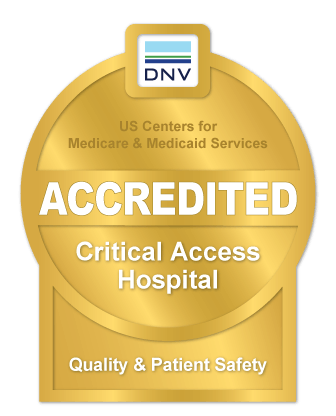Patient Rights & Responsibilities

Your Information. Your Rights. Our Responsibilities.
This notice describes how medical information about you may be used and disclosed and how you can get access to this information. Please review it carefully.
Notice of Privacy Policy
When it comes to your health information, you have certain rights. This section explains your rights and some of our responsibilities to help you.
Get an electronic or paper copy of your medical record:
- You can ask to see or get an electronic or paper copy of your medical record and other health information we have about you. Ask us how to do this.
- We will provide a copy or a summary of your health information, usually within 30 days of your request. We may charge a reasonable, cost-based fee.
Ask us to correct health and claims records:
- You can ask us to correct your health and claims records if you think they are incorrect or incomplete. Ask us how to do this.
- We may say “no” to your request, but we’ll tell you why in writing within 60 days.
Request confidential communications:
- You can ask us to contact you in a specific way (for example, home or office phone) or to send mail to a different address.
- We will consider all reasonable requests, and must say “yes” if you tell us you would be in danger if we do not.
Ask us to limit what we use or share:
- You can ask us not to use or share certain health information for treatment, payment, or our operations.
- We are not required to agree to your request, and we may say “no” if it would affect your care.
Get a list of those with whom we’ve shared information:
- You can ask for a list (accounting) of the times we’ve shared your health information for six years prior to the date you ask, who we shared it with, and why.
- We will include all the disclosures except for those about treatment, payment, and health care operations, and certain other disclosures (such as any you asked us to make). We’ll provide one accounting a year for free but will charge a reasonable, cost-based fee if you ask for another one within 12 months.
Get a copy of this privacy notice:
- You can ask for a paper copy of this notice at any time, even if you have agreed to receive the notice electronically. We will provide you with a paper copy promptly.
Choose someone to act for you:
- If you have given someone medical power of attorney or if someone is your legal guardian, that person can exercise your rights and make choices about your health information.
- We will make sure the person has this authority and can act for you before we take any action.
File a complaint if you feel your rights are violated:
- You can complain if you feel we have violated your rights by contacting us using the information on page 1.
- You can file a complaint with the U.S. Department of Health and Human Services Office for Civil Rights by sending a letter to 200 Independence Avenue, S.W., Washington, D.C. 20201, calling 1-877-696-6775, or visiting www.hhs.gov/ocr/privacy/hipaa/complaints/.
- We will not retaliate against you for filing a complaint.
Your Choices
For certain health information, you can tell us your choices about what we share. If you have a clear preference for how we share your information in the situations described below, talk to us. Tell us what you want us to do, and we will follow your instructions.
In these cases, you have both the right and choice to tell us to:
- Share information with your family, close friends, or others involved in your care
- Share information in a disaster relief situation
- Include your information in a hospital directory
If you are not able to tell us your preference, for example if you are unconscious, we may go ahead and share your information if we believe it is in your best interest. We may also share your information when needed to lessen a serious and imminent threat to health or safety.
In these cases we never share your information unless you give us written permission:
- Marketing purposes
- Sale of your information
- Most sharing of psychotherapy notes
In the case of fundraising:
- We may contact you for fundraising efforts, but you can tell us not to contact you again.
Our Uses and Disclosures
How do we typically use or share your health information? We typically use or share your health information in the following ways.
Treat You:
- We can use your health information and share it with other professionals who are treating you.
- Example: A doctor treating you for an injury asks another doctor about your overall health condition.
Run our organization:
- We can use and share your health information to run our practice, improve your care, and contact you when necessary.
- Example: We use health information about you to manage your treatment and services.
Bill for your services:
- We can use and share your health information to bill and get payment from health plans or other entities.
- Example: We give information about you to your health insurance plan so it will pay for your services.
How else can we use or share your health information? We are allowed or required to share your information in other ways – usually in ways that contribute to the public good, such as public health and research. We have to meet many conditions in the law before we can share your information for these purposes. For more information see: www.hhs.gov/ocr/privacy/hipaa/understanding/consumers/index.html.
Help with public health and safety issues:
- We can share health information about you for certain situations such as:
- Preventing disease
- Helping with product recalls
- Reporting adverse reactions to medications
- Reporting suspected abuse, neglect, or domestic violence
- Preventing or reducing a serious threat to anyone’s health or safety
Do research:
- We can use or share your information for health research.
Comply with the law:
- We will share information about you if state or federal laws require it, including with the Department of Health and Human Services if it wants to see that we’re complying with federal privacy law.
Respond to organ and tissue donation requests:
- We can share health information about you with organ procurement organizations.
Work with a medical examiner or funeral director:
- We can share health information with a coroner, medical examiner, or funeral director when an individual dies.
Address workers’ compensation, law enforcement, and other government requests:
- We can use or share health information about you:
- For workers’ compensation claims
- For law enforcement purposes or with a law enforcement official
- With health oversight agencies for activities authorized by law
- For special government functions such as military, national security, and presidential protective services
Respond to lawsuits and legal actions:
- We can share health information about you in response to a court or administrative order, or in response to a subpoena.
Our Responsibilities
- We are required by law to maintain the privacy and security of your protected health information.
- We will let you know promptly if a breach occurs that may have compromised the privacy or security of your information.
- We must follow the duties and privacy practices described in this notice and give you a copy of it.
- We will not use or share your information other than as described here unless you tell us we can in writing. If you tell us we can, you may change your mind at any time. Let us know in writing if you change your mind.
For more information see: www.hhs.gov/ocr/privacy/hipaa/understanding/consumers/noticepp.html.
Changes to the Terms of This Notice
We can change the terms of this notice, and the changes will apply to all information we have about you. The new notice will be available upon request, in our office, and on our web site.
Contact Us
If you have any questions, concerns, or want further information regarding the issues covered in this Notice or for additional information regarding our privacy policies, please contact the Hospital’s Privacy Officer at 220 Essie Davison Drive, Clarinda, Iowa 51632 or via phone at (712)542-2176.
This Notice of Privacy Practices applies to the following organizations:
- Villisca Family Health Center
- Bedford Family Health Center
- Clarinda Mental Health Center
- Rehabilitation and Sports Medicine Center
Patient Rights
The patient’s rights shall include, but are not limited to, the following:
- Reasonable access to care.
- Care that is considerate and respectful of his or her cultural, psychological, spiritual, and personal values, beliefs, preferences and personal dignity.
- Pastoral and other spiritual services.
- Participate in ethical questions that arise during his or her care, including issues of conflict resolution, withholding of resuscitative services, forgoing or withdrawing of life sustaining treatment, and participation in investigational studies or clinical trials.
- The right to participate and make informed decisions regarding his/her plan of care.
- Designate a representative to make decisions to exercise the patient’s right to participate in the development and implementation of the patient’s plan of care
- Make informed decisions regarding his or her care, this includes being informed of his or her health status, being involved in care planning and treatment, and being able to request or refuse treatment. This right does not include the ability to demand the provision of treatment, or services deemed to be medically unnecessary or inappropriate.
- Make informed decisions related to discharge planning for post-acute care.
- Be informed if there is no MD/DO present in the hospital 24 hours a day, 7 days a week.
- Have a family member or representative of his or her choice, and his or her own physician notified promptly of his or her admission to the hospital.
- Subject to his or her consent, to receive the visitors whom he or she designates, including, but not limited to, a spouse, a domestic partner (including a same-sex domestic partner), another family member, or a friend, and his or her right to withdraw or deny such consent at any time, and to be informed of any clinical restriction or limitation on such rights.
- Designate a support person to be present throughout the stay unless restricted by policy and to make decisions regarding visitation.
- Formulate advance directives and to have hospital staff and practitioners comply with the advance directives in accordance with federal and state laws and regulations.
- Give or withhold informed consent.
- Personal privacy. This right does not include the right to a private room.
- Be free from all forms of abuse or harassment.
- Confidentiality of all his or her health information and clinical records and patient access to clinical records as quickly as record keeping systems permits in the form or format requested. CRHC shall not impede the legitimate efforts of individuals to gain access to their clinical records.
- Be free from restraints or seclusion of any form that are not medically necessary or are used as a means of coercion, discipline, convenience, or retaliation by staff.
- Be advised of the procedure for submission of a written or verbal grievance, should he or she wish to communicate a concern regarding the quality of the care he or she receives or if he or she feels the determined discharge date is premature. To file an internal grievance at CRHC, contact the Chief Executive Officer (CEO) at 712-542-8214. The patient will be provided with a written notice of the grievance determination, the steps taken on his or her behalf to investigate the grievance, the results of the grievance, and the grievance completion date. The patient also has the right to appeal to an external agency by contacting:
Filing a Grievance
In the event a patient or the patient’s family or representative has a comment, complaint, or grievance he/she is encouraged to do one or more of the following:
a. Inform or ask any staff member
b. Speak directly to the nursing supervisor or management
c. Request to speak with someone in Administration
d. File a grievance in writing or by calling any of the executives/agencies below:
Clarinda Regional Health Center
Chief Executive Officer (CEO)
220 Essie Davison Drive
Clarinda, Iowa 51632
712- 542-8214
Quality Improvement Organization
Beneficiary and Family Centered Care: Commence Health
www.commencehealthqio.cms.gov/en/states/iowa
1-888-755-5580
Iowa Department of Inspections, Appeals, & Licensing
6200 Park Ave, Suite 100
Des Moines, Iowa 50321-1270
1-877-686-0027
Health & Human Services
Iowa Long Term Care Ombudsman
321 E. 12th St., 4th Floor
Des Moines, Iowa 53019
1-866-236-1430
1-515-250-7596
20. Receive Beneficiary Notice of non-Coverage and right to appeal premature discharge and Medicare Outpatient Observation Notice (MOON).
21. Access to treatment or accommodations regardless of race, color, national origin, age, disability, or sex (including pregnancy, sexual orientation, gender identity, and sexual characteristics) according to Section 1557 of the Affordable Care Act, diagnosis, or source of payment for care, including Medicare, Medicaid, or the Children’s Health Insurance Program (CHIP).
22. Recognition of all state-sanctioned marriages and spouses for purposes of compliance with the Conditions of Participation, regardless of any laws to the contrary or the state or locality.
23. A pain management plan.
24. The provision of care in a safe setting, including patients at risk for intentional harm to self or others.
25. Receive information in a language and format that the patient understands, including provision of interpreters or communication aids for those who are deaf, blind, have limited English proficiency (LEF), or are otherwise impaired.
26. Refuse the use of a scribe during the visit.
Patient Responsibilities
The patient/family is responsible for:
- Providing, to the best of their knowledge, accurate and complete information about presenting complaints, past illnesses, hospitalizations, medications, and other matters relating to the patient’s health. They are responsible for reporting unexpected changes in the patient’s condition to the responsible practitioner.
- Asking questions when they do not understand what has been told about the patient’s care or what they are expected to do.
- Following the treatment plan developed with the practitioner. They should express any concerns they have about their ability to follow the proposed course of treatment.
- Accepting the consequences of failing to follow the recommended course of treatment or using other treatments.
- The outcomes of refusing treatment or failing to follow practitioner instructions.
- Following the hospital’s rules and regulations concerning patient care and conduct.
- Being considerate of other patients and hospital personnel by not making unnecessary noise, smoking, or causing distractions.
- Respecting the property of other persons and that of the hospital.
- Promptly meeting financial commitments agreed to with the organization.
INFORMING THE PATIENT
Patients are to be informed of their rights and responsibilities upon admission to an inpatient setting, or upon initial presentation to an outpatient setting. This will be accomplished by providing the patient or patient representative with a written and/or posted statement of the rights and responsibilities. The patient’s rights should be provided and explained in a language or manner that the patient (or the patient’s representative) can understand.
INFORMING STAFF, PHYSICIANS, VOLUNTEERS, AND OTHER HEALTHCARE PROVIDERS
Staff, physicians, volunteers, and other health care providers will be informed of these patient rights and responsibilities as part of their orientation to the organization.
References
CMS Conditions of Participation for Critical Access Hospitals §485.608(a)
Center for Improvement in Healthcare Quality, Standard PR.1-PR.13; RS.1
The Joint Commission, Standard RI.01.01.01 – RI.,01.07.01
National Integrated Accreditation For Healthcare Organizations (NIAHO) & DNV GL Healthcare USA, Inc. (2024). Accreditation Requirements, Interpretive Guidelines and Surveyor Guidance for Critical Access Hospitals. DNV GL Healthcare USA, Inc. PR.1-PR.9)
Civil Rights: Section 1557 of the Patient Protection and Affordable Care Act. (2024, June 7). U.S. Department of Health And Human Services. https://www.hhs.gov/civil-rights/for-individuals/section-1557/index.html



